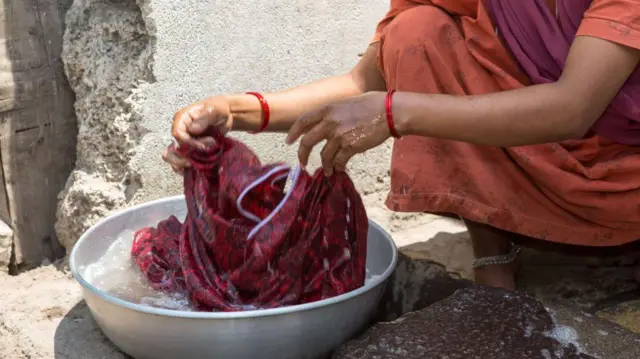“She Beat Me in Public and Refused to Pay”
Smitha (not her real name), a domestic worker in Delhi for 28 years, still shudders when she recalls the day she was publicly beaten by one of her employers.
The accusation? Stealing a pair of earrings.

The punishment? Abuse, humiliation, and withheld wages.
“After many requests, I confronted her in public. She started hurling abuses and slapping me. I held her hands to stop her, but the guards dragged me out of the housing complex and locked the gate,”
Smitha recalls.
She was eventually paid a measly ₹1,000 ($11) for a month of exhausting labor—sweeping, mopping, and washing dishes. But that only happened because a more sympathetic family intervened.
She was banned from entering the housing society and never reported the assault.
“I knew the police wouldn’t take me seriously.”
Smitha’s experience is just one of countless untold stories of domestic workers across India, many of whom face mistreatment, sexual violence, and unpaid wages.
Decades of Delayed Justice
Despite being a massive part of India’s informal economy, domestic workers remain without legal protection.
- Officially registered: 4.75 million workers
- ILO estimate: Between 20 and 80 million
The Supreme Court recently urged the Indian government to draft laws to protect domestic workers from exploitation. But this is not the first time the issue has been raised.
Failed Attempts at Legal Protection
- 2008 & 2016: Bills to register domestic workers and improve conditions never passed.
- 2019: A national policy draft aimed at including domestic workers in labor laws—still not implemented.
- 2024: The Supreme Court’s latest intervention—will it bring real change?
“Successive governments have ignored this issue despite overwhelming evidence of exploitation,” says Sonia George from the Self Employed Women’s Association (SEWA), who helped draft the 2019 policy.
An Industry Built on Exploitation
Domestic workers lack contracts, job security, and even a guaranteed salary. Their status as “house help” keeps them outside formal labor protections.
What’s Missing?
✔ Minimum wage enforcement – Mandated in some states but rarely implemented.
✔ Legal contracts – Most workers are hired informally with no written agreements.
✔ Basic labor rights – No paid leave, overtime pay, or workplace protections.
“We have a patronizing relationship with domestic workers, not a labor-employer relationship. This is why the profession remains unregulated,” says Professor Neetha N from the Centre for Women’s Development Studies.
Even Existing Laws Are Ignored
Some federal laws (like India’s anti-sexual harassment act) include domestic workers, but:
- Most workers don’t even know their rights.
- There is no mechanism to register or monitor employers.
“Domestic workers are invisible in the system, and that allows employers to escape accountability,”
says George.
The caste system further complicates the issue—certain workers refuse to clean toilets due to caste-based restrictions, while others, from even lower castes, have no choice.
India Voted for Global Protection — But Won’t Enforce It
In 2011, India voted in favor of ILO’s Convention 189, which guarantees domestic workers:
- Fair wages
- Defined working hours
- Legal protections
But over a decade later, India still hasn’t ratified it.
“India has a moral obligation to ratify this convention. Without legal protections, workers will continue to face severe exploitation,”
George warns.
The issue isn’t just domesticc—cmany Indian workers go abroad and are trafficked into abusive situations.
A shocking example emerged in 2023 when:
- The wealthy Hinduja family in Switzerland was convicted of exploiting Indian domestic workers.
- The workers were forced to work long hours for little pay.
- The Hinduja family denied wrongdoing and is appealing the verdict.
Why Laws Haven’t Been Passed Yet
If the abuse of domestic workers is so widespread, why doesn’t India act?
“The people who have the power to pass laws are also the ones benefiting from the system.”
✔ Politicians, bureaucrats, and business leaders all employ domestic workers.
✔ Regulations would mean stricter responsibilities for employers.
✔ Changing the system would disrupt a deeply entrenched hierarchy.
“For real change, we need a shift in mindset — not just laws,” George argues.
Until that happens, millions of domestic workers will remain invisible, exploited, and unprotected.